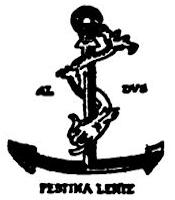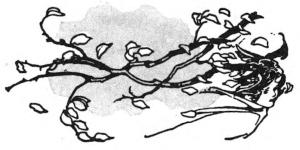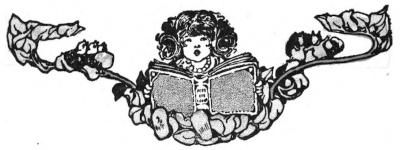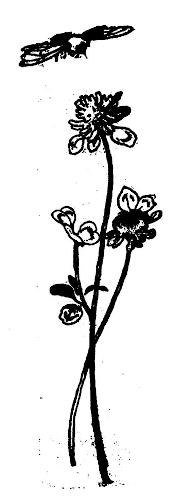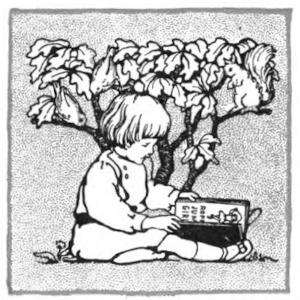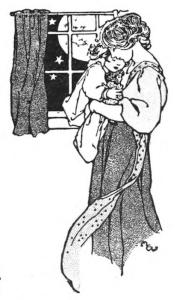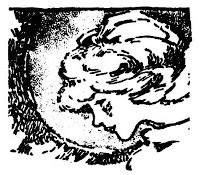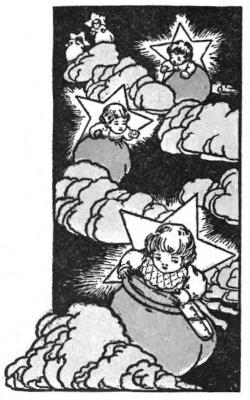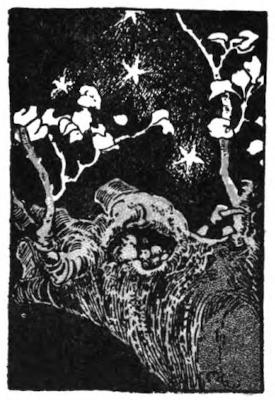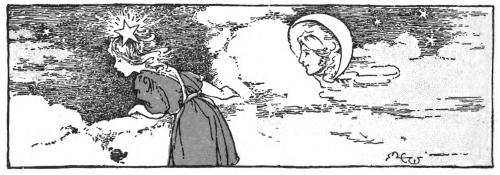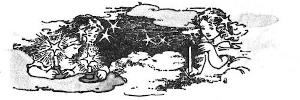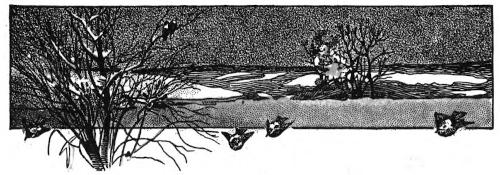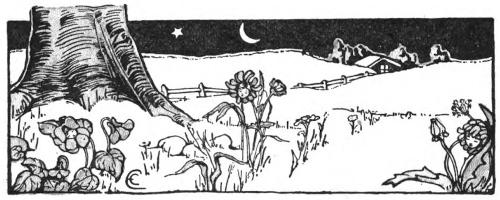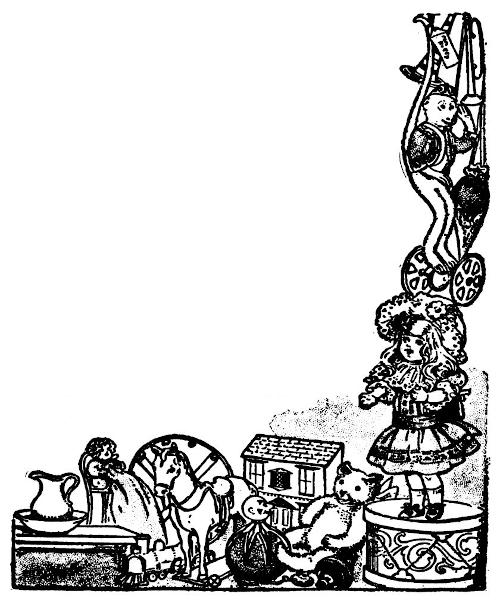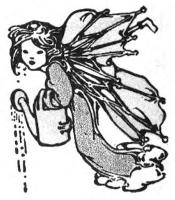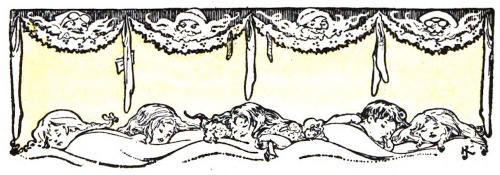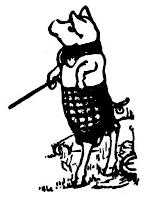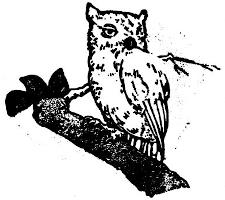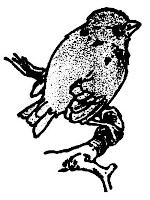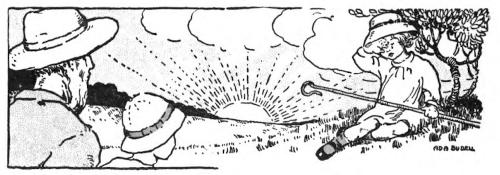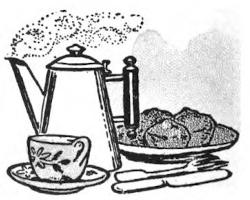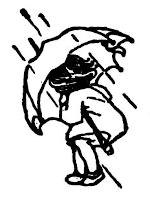The Project Gutenberg eBook of The Aldine Speller: Part One, by Catherine T. Bryce
This eBook is for the use of anyone anywhere in the United States and
most other parts of the world at no cost and with almost no restrictions
whatsoever. You may copy it, give it away or re-use it under the terms
of the Project Gutenberg License included with this eBook or online
at
www.gutenberg.org. If you
are not located in the United States, you will have to check the laws of the
country where you are located before using this eBook.
Title: The Aldine Speller: Part One
for Grades One and Two
Authors: Catherine T. Bryce
Frank J. Sherman
Release Date: March 23, 2022 [eBook #67693]
Language: English
Produced by: hekula03 and the Online Distributed Proofreading Team at https://www.pgdp.net (This book was produced from images made available by the HathiTrust Digital Library.)
*** START OF THE PROJECT GUTENBERG EBOOK THE ALDINE SPELLER: PART ONE ***
[i]
THE
ALDINE SPELLER
PART ONE
FOR GRADES ONE AND TWO
BY
CATHERINE T. BRYCE
ASSISTANT SUPERINTENDENT OF SCHOOLS
MINNEAPOLIS, MINN.
AND
FRANK J. SHERMAN
FORMERLY SUPERINTENDENT OF SCHOOLS
MONSON, MASS.
NEW YORK
NEWSON & COMPANY
[ii]
Copyright, 1916, by
NEWSON & COMPANY.
All rights reserved.
To teachers and the public alike, probably no subject
taught in the public schools has been more disappointing
than spelling. This disappointment is undoubtedly due to:
1. Defective material for study and poor methods of
teaching;
2. Too much testing and too little teaching;
3. Finding errors rather than preventing them;
4. The use of a theoretical, rather than the practical,
vocabulary of children and adults.
The teaching of spelling must be done from a spelling book
in the hands of the children, since the individual teacher
does not have the time to prepare lists of words which will
produce as good results as the lists given in a spelling book,
the selection and preparation of which are the result of
years of special observation and testing.
A plan of teaching spelling to secure the best results should
consist of a thoughtful, systematic, and comprehensive presentation
of the words and spelling facts which every pupil
must learn. It must contain an adequate and simple
system of phonics for the primary grades, since a large percentage[iv]
of the words in common use are purely phonetic
and present no spelling difficulties once a sane and practical
phonetic foundation is fixed. It must have a vocabulary
selected and graded with such care that it will give the
child the ability to spell correctly those words which he
needs to use in his written work, and that it will also develop
and broaden his vocabulary for his future needs. It should
contain suitable directions and hints to the teacher, sufficiently
removed from the pupil’s text so that he may not
be confused by them. It may, and in many grades should,
contain information and suggestions to the pupil that will
help him to master the many peculiarly non-phonetic words
which present their individual problems and must be individually
mastered. It should contain a very few of the
most important spelling rules simply stated. It should
contain a large variety of sentences for dictation, which
may wisely take the form of gems of thought. Such a plan,
well taught, constantly supplemented by the teacher with
such words as the peculiar difficulties of individual pupils
and classes may require, will produce a maximum of ability
to spell correctly.
In the Aldine Speller the authors have presented a plan
of teaching which in actual results has proved singularly
effective. The vocabulary has been selected and graded
with unusual care to meet the actual needs of life and to
develop a spelling sense. In its preparation a careful comparison[v]
was made of the vocabularies of several of the most
popular spelling books of the day in respect to both gradation
and selection. Paralleling this, the various recent
tests and investigations, notably those of Ayres, Jones, and
Cook and O’Shea, have been checked. The resulting vocabulary
is thought to represent the real writing vocabulary of
the average child of the grade in which it is taught. Special
and repeated drills are given on the real trouble makers—the
one hundred and more words that comprise four-fifths
of the misspelled words of the schoolroom.
In the primary grades use is made of exceptionally valuable
phonetic lists. Emphasis is placed upon this important
and very practical foundation for the development of a
spelling sense, and its mastery in the primary grades will do
much to train children to spell correctly. A few comparatively
uncommon words are used in these lists chiefly for
the value of the phonetic drill.
As every error creates a tendency, and if repeated quickly
establishes a habit, it is important that the correct spelling
of words be taught before children have occasion to write
them. Every worth-while test and investigation shows the
most common and most useful words in our language to be
the words used early by children. It is likewise certain that
very many of the misspelled words are one-syllable words in
very common use. It would, therefore, seem essential that
the real teaching of spelling should be done as early as possible[vi]
in the grades—somewhat earlier than has frequently
been the case—that correct habits, rather than incorrect
ones, may be formed.
Obligation is expressed to Dr. Leonard P. Ayres of the
Russell Sage Foundation for kind permission to make use
of his list of “The Thousand Commonest Words.” These
and some four thousand other very common and important
words constitute the Aldine vocabulary.
That the Aldine Speller may lead to some real teaching,
and decrease “lesson hearing,” is the hope of the authors.
[vii]
DIRECTIONS TO TEACHERS
Oral Spelling
Oral spelling should always precede written spelling in
the primary grades. Careful and distinct pronunciation by
the child should always precede oral spelling. Children
cannot be expected to spell correctly words that they cannot
pronounce. It is well to emphasize the form of a word
of more than one syllable by syllabication. It makes the
spelling more obvious, promotes clear enunciation, and
assists in creating a correct mental picture of the word.
The sight words in this book are so syllabicated when first
presented. A slight pause between the syllables is usually
sufficient in oral spelling. In writing the words they should
not be divided.
Testing
The mere “hearing” of spelling lessons is happily a thing
of the past in most schools. However, teachers cannot be
too strongly impressed with the worthlessness of such exercises.
The primary object is to instruct, not to examine—to[viii]
teach to spell correctly, not to find out how many words
may be spelled incorrectly. Review lessons are frequently
given, and these are sufficient for test purposes. All other
lessons should be thoroughly taught with instruction the aim
and object of the lesson.
Correlation with Phonics
The best possible preparation for teaching to spell is
thoughtful, intelligent drill in phonics. As all modern
methods of teaching reading give systematic phonic drills,
and thus most children have had some preparation before
spelling is begun, the phonetic lists in this book will be found
to be easy. Not only will they be easy, if intelligently
taught, but they will serve the double purpose of teaching
the children to spell intelligently and independently, and of
enabling them to recognize new words. In other words, the
right kind of phonetic teaching may be made of great educative
value, teaching at the same time both spelling and
reading. Thoughtful consideration will show the teacher
that a large proportion of words are strictly phonetic, i.e.
“spell themselves.” In learning the spelling of one word,
if the phonetic elements have been properly and thoroughly
taught, the child is learning the spelling of all words containing
the same phonograms. It is, therefore, of the
utmost importance in the primary grades that a phonetic
sense be developed and utilized.
[ix]
The lists used in this book are presented first in the text
as short lists, each of which precedes the use of any word
of the series in dictation. On page 61 will be found more
complete lists for supplementary drill. These are numbered
in the same order and are similar to those found on the Aldine
Phonic Chart, which the teacher will find to be of great
assistance. Drills on these complete series may well be
given whenever a review or additional lesson is possible.
The pupil may study from his book; quick drills may be
given from the Phonic Chart; then a selected list may be
dictated by the teacher. Too much intelligent drill on these
phonic series cannot be given.
Interest
It has been well said that “interest is nine-tenths of education.”
This is true in teaching spelling. Any means
which will arouse interest in mastering words is likely to be
effective. So far as our forefathers succeeded in securing
results in this subject they did so by the interest in the old-fashioned
“spelling bee.” Spelling matches of various sorts
are desirable for creating interest. The review lists and phonetic
lists will be found admirable for this purpose. It
should be remembered, however, that this is testing what is
already learned and is not teaching something new.
[x]
Pupils’ Lists
Each pupil has his own difficulties in spelling. Teach him
to make private lists of the words which he finds especially
hard to spell and have him use extra effort to conquer these
trouble makers. These may be listed in the back of his
textbook or in his individual notebook. Occasional lessons
may be devoted entirely to this kind of exercise, and they
should be individual and painstaking. Such words should
be watched for in the other written work and misspelling
prevented rather than corrected. Besides making the misspelled
words the basis of a lesson they may well be correctly
and carefully written on the board with the difficulty shown
in colored crayon. If possible leave them in sight for
several days.
Reviews
Frequent reviews are given, and these should be used to
test the children, to check their accomplishment, and to
supply a record of their individual ability. The lists of
“Initial Words of Phonetic Series” at the end of the work
for each grade should be used for the same purpose, and
much valuable reviewing may be done with the Series themselves.
The Phonic Chart is valuable for this purpose.
Alphabetical List
That the teacher may know just what words have been
taught, an alphabetical list of all sight words is given at the
end of the book.
[xi]
Homophones
Words spelled differently but pronounced alike should be
kept apart until the spelling of each has become fixed and
the ability to use correctly in sentences, reasonably sure.
Then only may they safely be brought together for comparison.
When this is done, much care must be used that
no confusion may exist in the child’s mind as to the proper
use of each.
Order of Presentation
All children do not learn spelling equally well in the same
way. Some are sense-organ learners, while others are largely
motor-organ learners. Most children are both. In all
cases the order of seeing words, hearing them pronounced,
pronouncing them, spelling them aloud, and then writing
them, will be found to be most effective. Appeal is thus
made successively to the eye, the ear, the memory, and the
hand.
Proper Names
In the first grade the child should be taught to spell his
own name. In the second grade he should be taught the
most common names of other children in the room, the name
of the teacher, of the city or town, and of the state. He
should be taught that these names always begin with a
capital letter. Other local names of special importance
may be presented at the discretion of the teacher.
[xii]
HOW THIS BOOK IS TO BE USED
The Alphabet
Page 1
Often the spelling of words is forced upon the child before
he has properly mastered the alphabet. This is the cause
of much poor spelling, much guessing in the primary grades.
Before a child is allowed to spell orally he should be absolutely
sure of the name of every letter, and he should be able
to recognize and name it at sight. Before he is allowed to
write one word in a dictated spelling lesson, the pupil should
be able to write any letter of the alphabet from dictation.
This means that the real study of spelling should not be
undertaken until the middle of the first year or later.
Be sure that your pupils know their letters before beginning
spelling. Following are some suggestions for Alphabet
drills. Use any that you think helpful.
Alphabet Drills
1. Have pupils read the alphabet in order, pointing to
each letter as it is named.
[xiii]
2. Have pupils point to the letters in any order as you
call them.
In this drill teach them the approximate place of the
letters, that is, to look for a, d, c, f, near the beginning; j,
n, k, o, near the middle; t, v, w, near the end.
3. Ask such questions as, “What letter comes after m? n?
d? t?”
4. Consonant Drills.
(a) Call a letter and have pupils give the sound.
(b) Sound a letter and have pupils give the name.
5. Written Work.
(a) Have pupils copy the alphabet in script from print.
(b) Have pupils write the alphabet from memory.
(c) Dictate the letters in any order and require the pupils
to write them. Time the children in this exercise, encouraging
them to write as rapidly as possible.
6. The Typewriter Game.
Call the alphabet on page 1 of the child’s book the keys
of a typewriter. Have the children spell words, touching
the letters as the letter keys. Dictate as follows: “Write
at on your typewriter.” The pupils touch a and t as they
spell aloud. Then dictate cat, bat, hat. Use phonetic
words or words made of letters near together in the alphabet.
The object of the exercise is to find quickly the place of
each letter in the alphabet, as well as to give the ability to
quickly recognize the letters.
[xiv]
A Phonetic List
Page 2, Lesson 1
As may be seen at a glance, this lesson contains five words
using the phonogram un.
The directions and suggestions given below for the study
of this particular lesson apply to all similar phonetic lessons
in the book.
1. Pronounce each word distinctly, giving its meaning
or using it in a sentence, as, “sun—The sun is shining
brightly.” You thus give the children the word properly
used and leave in no pupil’s mind the idea that you meant
son. “Fun—Did you have fun at recess time, Tom?”
Tom’s recollection of the recess games will associate the
word and its meaning. “Gun—Who has seen a gun?
What is its use? Bun—The baker puts currants in the
bun.” By the variety of ways in which you give or suggest
the meaning of the word, try to arouse the pupil’s
interest in the word itself. Never require a pupil to study
the spelling of a word until he has heard it properly pronounced
and knows the meaning.
2. Have the pupils read the words, pronouncing each
correctly. The children may give original sentences, using
any unusual word.
3. Pupils pronounce and spell each word orally.
4. Ask what letters are found in every word. Teach the[xv]
children to call the common part the “family name” of
the word and to spell it as a unit, as, “sun—spell,
s-un.”
5. Tell the children to look at the list of words and choose
the hardest. They may look at the word for a moment,
then spell it without looking at the book. In some such
way arouse interest in the spelling of each word in the lesson,
as, “Who can find and spell the word that is the name of
something that makes a great noise?” “The one we all
enjoy at recess?” “The one that opens the flowers?”
“The one we like to eat?”
6. Pronounce each word, give the family, and spell the
word thus, sun, -un, s-u-n. Have pupils emphasize the first
letter—the part of each word that is not common to the
series—as, sun, fun, bun, gun, nun.
7. Children place their books face down on their desks,
while the teacher dictates the words. Children spell orally.
If a word is missed, do not pass it to another child. The
one who missed turns over his book and studies the correct
spelling while the teacher continues to dictate words to the
other pupils. After all the children have spelled, those who
missed have a chance to spell their words correctly. From
the beginning every child must feel a responsibility for every
word dictated to him. He must spell it correctly before
the lesson is ended for him.
In all oral spelling, save time by having the children respond[xvi]
in turn without being called upon by name. Perhaps
the best way is to go up and down the rows.
Copying a Spelling Lesson
Spell the first word very softly and write it on the blackboard
as you pronounce each letter. The children look at
the written form on the board, and copy the word, saying
to themselves each letter as they write. Do the same with
other words.
It is not necessary to copy each word more than once.
The common part or family name—the combination of
letters that requires special drill—is repeated in each word.
As pupils gain facility in written letter forms, they should
copy their lessons once in script from the printed lesson in
the book. For the first ten lessons, however, the teacher
may well take the time to have the work copied from the
board.
Dictating a Spelling Lesson
The teacher who truly means to make her children realize
the importance of accurate spelling and neat writing will
see that each child has a notebook in which to keep his
spelling lessons. She will show him just how the work
should be arranged in his book. (The child’s Spelling Book
shows a good arrangement.) She will insist that he follow
the arrangement and that his penmanship be neat. If the
teacher cannot provide regular blank books for spelling, the[xvii]
children may make their own of regular writing paper,
fastening the requisite number of sheets together with two
Magill fasteners, or sewing them with thread or raffia.
In dictating, pronounce each word clearly and distinctly.
Have the children repeat, then write the word. This habit
of correct pronunciation of the words cannot be overemphasized.
It has been said, and the saying is true, “A
word correctly pronounced is half spelled.”
Marking and Correcting Papers
When a lesson is perfect, mark it. Mark it 100%. That
is the mark primary children like best. Mark it in colored
pencil. If the child has made a special effort in writing or
in neatness, show your appreciation and observation by affixing
a star or some other symbol to his paper. Encourage
him, make him proud of his spelling, proud of his writing,
proud of his book, proud of himself.
Give no spelling mark but the mark for perfect work.
When a child makes a mistake in spelling, call his attention
to it. If it is only a careless mistake, he will spell the
word orally. The teacher then erases the mistake, and the
child corrects it. If, however, the child has not mastered
the correct spelling, he should be referred to his book.
When he can spell the word, the teacher erases the incorrectly
spelled word, and the child writes it correctly.
The correcting of the lesson should follow as soon as possible[xviii]
the writing of the lesson. In order that this may be
done in the same period, the lessons are kept very short.
In order that there may be few mistakes the lessons are very
simple. If the lessons are studied as suggested, there should
be very few errors to correct. If the work is corrected as
definitely as outlined, the pupils will soon learn what is
required of them, and will take pride in having a perfect,
attractive book. The arousing of such pride, and the cultivation
of habits of correctness and neatness are of incalculable
value.
1. By thoughtful, intelligent study, prevent errors.
2. When mistakes are made, have the pupils correct them
immediately as an important duty.
Sight Words
Lesson 3, Page 2
The children have had two series or families in past
lessons. In the new lesson ask them to look for words that
belong to these families. They will find run in the un
family, and me, the, tree, in the e (ee) family. These words
should be distinctly pronounced and spelled orally.
The remaining word is to. It belongs to no family that
the children have studied. Have the children pronounce it,
use it in a number of simple sentences, and spell it.
Give each child a small piece of paper. Tell the children
to look at to and spell it silently. Then without looking at[xix]
the book have them write the word on paper. Each word
in the lesson may be studied and written in the same way.
Writing Sentences
Lesson 4, Page 2
No new spelling words occur in this lesson. It is a review,
an application of some of the words learned.
The first lesson, and perhaps a few others of the same
kind, should be taught from the board, although it is better
that each child should have a book before him.
A child reads the first sentence from the book. “Run to
me.”
The teacher says, “I will write it on the board if you will
spell the words. The children in the first row stand.”
Without waiting to be called upon by name the children
spell the words in turn.
The teacher says, “Run begins with a capital letter because
it is the first word in a sentence. Spell it, capital
R-u-n.”
When all the words in the sentence have been spelled and
written on the board, the teacher places the period at the
end, saying, “There is a period at the end of this sentence.”
The second sentence is to be spelled by the children and
written on the board by the teacher in the same way.
The children may now copy the sentences from the blackboard.
[xx]
The two things to be taught in this lesson are the capital
to begin the first word, and the period at the end of the
sentence.
Reviews of Phonetic Words
Phonetic reviews are given frequently throughout the
book. Each lesson contains one word of the series taught.
These words are numbered.
Have the children open their books to the review lesson,
as that on page 6.
Let the children read the words and the families, as, run-un,
me-e, play-ay, fly-y. Then have each word spelled orally.
Now dictate other words from the same families, as, sun,
see, gay, cry, sand. If a pupil misspells a word, give him
the number of the family in which the word occurs. Let
him look in his book, study his word, and be ready to spell
it when you have finished dictating other words to the rest
of the class. Thus you may dictate the word say. The
child hesitates or misspells the word. Give him number
3. He looks in his book, finds 3 and the well-known
word play after the number. He knows the word say
is in the same family, and he studies out the word while
you are hearing the rest of the class spell words in the other
families. When you return to him and ask, “What is your
word?” he answers, “Say—s-a-y.”
Never pass a word to a second child. Each child must[xxi]
spell, with help if necessary, every word that is dictated to
him.
For written review, dictate any words from the series
represented in the review lesson. Return again and again
to these review lessons.
Seat Work
Have the children copy the words and under each write
one or more words in the same family. Thus:
| run |
me |
play |
fly |
and |
| fun |
be |
hay |
try |
band |
Reviews of Sight Words
Use these reviews for oral spelling matches and for written
tests. Keep records of these written tests. There are 36
sight words assigned to the first year.
The following chart is simple and effective in keeping a
record of these tests.
Spelling Chart
We can spell:
| Children’s Names |
12 Words |
24 Words |
36 Words |
| John Smith |
100% |
100% |
|
| Mary Brown |
100% |
|
|
| Tom Good |
100% |
100% |
100% |
This shows that John Smith can spell the first two columns[xxii]
of sight words given on page 17, Mary Brown can spell the
first column, and Tom Good can spell all three. No mark
but the 100% mark is placed on the chart. Arouse the child’s
interest and ambition to master these sight words.
In the second year, keep a space on the chart for each
review lesson as it occurs.
Additional Seat Work
1. Make the words or sentences in each lesson with
“word builder” letters. This work should be carefully
examined to see that it is correct and that it follows the
arrangement given in the book.
2. Copy in script the lesson from the book.
The Question
Lesson 32, Page 8
Teach the use of the question mark as follows, “There is
a question mark after ‘Will they fall?’ because this sentence
asks a question.”
Quotation Marks
Lesson 23, Page 25
Have the children copy these sentences, telling them that
the quotation marks are put around, “Where are my baby
stars?” because these are the words of the moon. If
omitted in dictation lessons, have the child open his book
and put them in, but do not count this omission an error.
THE ALDINE SPELLER
PART ONE
FIRST YEAR

THE ALPHABET
| a |
b |
c |
d |
| e |
f |
g |
h |
| i |
j |
k |
l |
| m |
n |
o |
p |
| q |
r |
s |
t |
| u |
v |
w |
x |
|
y |
z |
|
[2]
4
Run to me.
Run to the tree.
[3]
6
- band
- hand
- land
- sand
- stand
8
Run and play.
Play with me.
[4]
9
- by
- my
- try
- cry
- dry
- buy
- why
10
- bold
- cold
- gold
- sold
- told
- hold
- fold
12
The little birds fly.
Fly to the old tree.
[5]
13
- best
- rest
- west
- test
- vest
- chest
- pest
14
- all
- ball
- call
- fall
- hall
- wall
- small
15
- pin
- spin
- tin
- chin
- win
- skin
- thin
[6]
17
- ear
- dear
- fear
- year
- near
- tear
18
- low
- row
- grow
- show
- slow
- snow
20
Fly to the nest.
The nest is in the tall tree.
Review
21
- (1) run
- (2) me
- (3) play
- (4) fly
- (5) and
- (6) bold
22
- (7) all
- (8) best
- (9) in
- (10) dear
- (11) blow
- (12) it
[7]
24
Hear the wind blow.
It blows the tall trees.
25
- bill
- fill
- hill
- mill
- still
- ill
26
- ring
- bring
- wing
- king
- thing
- spring
[8]
28
- book
- hook
- took
- brook
- cook
- shook
30
- wade
- fade
- grade
- shade
- spade
- made
32
The birds sing in the tree.
Will they fall?
[9]
Look at the little nest.
Who made it?
[10]
Can you sing?
Yes, I can sing a song.
Review
38
- (1) will
- (2) sing
- (3) glad
- (4) look
- (5) at
- (6) made
39
- (7) can
- (8) song
- (9) blow
- (10) it
- (11) nest
- (12) the
[11]
40
- peep
- deep
- creep
- keep
- sheep
- sweep
42
- might
- sight
- light
- right
- bright
- fight
43
Sleep, little bird.
Sleep in the little nest.
Sleep and rest.
[12]
It is night.
The birds are asleep.
45
- fast
- last
- cast
- mast
- past
- blast
46
- hop
- mop
- drop
- stop
- shop
- top
47
- bake
- cake
- lake
- make
- rake
- take
[13]
Wake up.
The night is past.
Fly to the tree-top.
Review
49
- (1) sleep
- (2) bed
- (3) night
- (4) last
- (5) top
50
- (6) wake
- (7) up
- (8) look
- (9) old
- (10) all
[14]
52
- six
- sev en
- eight
- nine
- ten
53
- fa ther
- moth er
- broth er
- sis ter
- ba by
The boy has a dog.
The girl has a doll.
[15]
55
- blew
- new
- knew
- dew
- few
- flew
56
- Jack
- back
- black
- tack
- crack
- sack
57
- in to
- into
- up on
- upon
- a way
- away
The birds flew away from the nest.
Will they come back?
[16]
Review of Phonetic Words
- fun
- he
- say
- stand
- buy
- told
- west
- small
- skin
- dear
- know
- sit
- still
- bring
- had
- took
- that
- made
- man
- long
- keep
- red
- right
- last
- stop
- knew
- back
- cup
- make
- ring
- deep
- hand
- thin
[17]
Review of Sight Words
- to
- with
- birds
- little
- is
- wind
- they
- who
- you
- yes
- are
- one
- two
- three
- four
- five
- six
- seven
- eight
- nine
- ten
- father
- mother
- brother
- sister
- baby
- boy
- girl
- has
- dog
- doll
- into
- on
- upon
- come
- from
[18]
[19]
THE ALDINE SPELLER
PART ONE
SECOND YEAR
[20]
[21]
SECOND YEAR
1
- moon
- soon
- noon
- spoon
- boon
Did you see the sky last night?
The moon was bright.
The stars were shining too.
[22]
5
- find
- kind
- bind
- be hind
- mind
6
- fine
- dine
- line
- mine
- shine
7
- cross
- toss
- boss
- loss
- moss
The moon is the mother.
The stars are her children.
9
Review of Sight Words
[23]
Review of Phonetic Words
10
- (1) moon
- (2) find
- (3) hid
- (4) cross
- (5) dine
- (6) noon
- (7) far
11
- (1) did
- (2) loss
- (3) shine
- (4) kind
- (5) bar
- (6) pine
- (7) lid
12
- (1) star
- (2) fine
- (3) soon
- (4) boss
- (5) bid
- (6) bind
- (7) nine
13
- tell
- well
- bell
- fell
- spell
15
- must
- just
- dust
- rust
- crust
[24]
STARS AND DAISIES
One night the little stars were cross.
They would not shine.
They hid behind a cloud.
[25]
20
- down
- town
- gown
- clown
- brown
- crown
- drown
21
- get
- let
- yet
- met
- net
- pet
- wet
22
- saw
- paw
- jaw
- law
- raw
- straw
- draw
“Where are my baby stars?” said
the moon.
“Why are they not shining?”
“Tell me why they do not shine,”
she said.
[26]
We do not want to
shine.
Let the large stars
shine.
We are going to sleep.
You were born to shine.
I will have no lazy stars here.
You must go to the earth.
[27]
Review of Sight Words
27
- want
- here
- would
- why
- children
28
- large
- not
- lazy
- where
- were
Review of Phonetic Words
29
- (1) down
- (2) loud
- (3) drown
- (4) corn
- (5) how
- (6) loss
30
- (1) get
- (2) soon
- (3) just
- (4) shine
- (5) born
- (6) now
31
- (1) crust
- (2) behind
- (3) spell
- (4) car
- (5) did
- (6) draw
[28]
The lazy stars shook with fear.
Most of them lost their hold.
Down they fell to the earth.
[29]
The little stars had to lie on the cold
grass.
All night they had to lie there.
They wished they had been good.
Did any one see the stars?
Father Sun saw them.
“What can be done for them?” he said.
[30]
“How cold the stars look.
They will die,” said the sun.
“Not if we cover them with snow,”
said the clouds.
39
- rose
- those
- nose
- hose
- pose
[31]
All winter the stars were covered
with snow.
The stars above shone down on them.
But they did not wake.
43
- rain
- gain
- pain
- grain
- chain
- train
- plain
44
- rock
- cock
- block
- lock
- knock
- clock
- sock
45
- eat
- heat
- beat
- meat
- neat
- seat
- cheat
[32]
At last the spring came.
The sun sent his rays down to the earth.
It is time for the stars to wake.
The stars opened their sleepy eyes.
They looked up at the sun.
He smiled at them.
They were not cross now.
[33]
These stars now live on the earth.
They shine all day long.
Children call them daisies.
Review of Sight Words
[34]
50
| March winds rock the trees. |
March |
| April brings the rain. |
April |
| May brings the birds back. |
May |
| June brings roses. |
June |
| July brings heat. |
July |
Review of Phonetic Words
51
- (1) soon
- (2) hid
- (3) far
- (4) sell
- (5) kind
- (6) shine
- (7) loss
52
- (1) brown
- (2) get
- (3) horn
- (4) just
- (5) class
- (6) stone
- (7) straw
[35]
53
- deer
- peer
- cheer
- queer
- steer
55
- gift
- swift
- lift
- drift
- sift
Hark! I hear bells.
Santa Claus is coming.
His reindeer are as swift as light.
[36]
57
- ought
- bought
- brought
- thought
- sought
Santa Claus came last night.
We were all asleep.
He brought us many gifts.
[37]
We did not see him.
How does Santa carry our gifts?
He has a big bag.
What a very big bag it is!
62
- As bright as day.
- As swift as a deer.
- As old as the hills.
- As good as gold.
- As red as a rose.
- As dark as night.
[38]
Santa brought Nell a doll cradle.
He brought Ned a box of candy.
He brought baby sister a cooky.
He brought the kitten some milk.
He brought the dog a bone.
Don’t you love Santa?
[39]
Review of Sight Words
65
- done
- time
- smile
- now
- Santa Claus
- many
- carry
- candy
- said
- do
66
- his
- open
- these
- March
- June
- of
- does
- our
- cooky
- milk
67
- eyes
- if
- live
- April
- July
- reindeer
- us
- cradle
- box
- some
[40]
69
- head
- spread
- dead
- lead
- read
- bread
- thread
70
- ice
- nice
- slice
- mice
- rice
- price
- spice
71
- air
- hair
- fair
- pair
- chair
- lair
- stair
72
- to day
- today
- do not
- don’t
Cloud, cloud, don’t stay today,
But spread your wings and fly away.
[41]
73
A glass of milk and a slice of bread,
And then good-night, we must so to bed.
Some mice sat in the barn to spin,
Kitty came by and popped her head in.
[42]
75
- feed
- deed
- need
- seed
- weed
- reed
- speed
76
- gave
- shave
- save
- brave
- cave
- wave
- pave
77
- pick
- quick
- Dick
- kick
- lick
- sick
- tick
78
Barber, barber, shave a pig.
How many hairs will make a wig?
[43]
A man of words and not of deeds
Is like a garden full of weeds.
Review of Sight Words
80
- been
- two
- father
- five
- baby
- nine
- any
- many
81
- their
- ten
- three
- brother
- six
- mother
- cover
- little
82
- one
- eight
- dog
- four
- sister
- seven
- large
- done
[44]
See a pin and pick it up,
All the day you’ll have good luck.
84
- out
- about
- pout
- stout
- spout
- shout
- scout
- trout
85
- broke
- smoke
- spoke
- joke
- poke
- yoke
- choke
- woke
86
- pail
- sail
- wail
- tail
- bail
- fail
- nail
- mail
[45]
Jack and Jill went up the hill
To get a pail of water.
Jack fell down and broke his crown,
And Jill came tumbling after.
88
- luck
- duck
- cluck
- tuck
- stuck
- suck
89
- owl
- fowl
- growl
- howl
- prowl
90
- cried
- dried
- fried
- died
- lied
- tied
[46]
91
A little boy went into a barn
And lay down on some hay.
An owl came out and flew about,
And the little boy ran away.
Review of Phonetic Words
92
- (1) nice
- (2) gave
- (3) chair
- (4) feed
- (5) quick
- (6) cried
93
- (1) bread
- (2) duck
- (3) broke
- (4) pail
- (5) brave
- (6) owl
94
- (1) howl
- (2) about
- (3) sail
- (4) spoke
- (5) stick
- (6) tied
[47]
Once I saw a little bird
Come, hop, hop, hop;
So I cried, “Little bird,
Will you stop, stop, stop?”
96
- lies
- flies
- cries
- skies
- dries
- tries
- ties
97
- cool
- school
- fool
- pool
- spool
- tool
- stool
98
- ate
- late
- gate
- mate
- hate
- plate
- Kate
[48]
There’s a neat little clock,
In the schoolroom it stands,
And it points to the time
With its two little hands.
Review of Sight Words
100
- where
- kitty
- words
- like
- garden
- once
101
- after
- full
- water
- barn
- done
- now
102
- candy
- don’t
- was
- were
- us
- you
[49]
Cocks crow in the morn
To tell us to rise,
And he who lies late
Will never be wise.
105
- rap ping
- nap ping
- trap ping
[50]
106
- Bo-peep
- they will
- they’ll
107
Little Bo-peep has lost her sheep,
And can’t tell where to find them;
Leave them alone and they’ll come home,
And bring their tails behind them.
[51]
108
- hive
- live
- drive
- five
- alive
- dive
110
- kite
- bite
- site
- white
- write
- quite
One, two, three, four, five,
I caught a fish alive.
Six, seven, eight, nine, ten,
I let it go again.
[52]
112
- feet
- meet
- beet
- sweet
- sheet
- fleet
113
- found
- round
- a round
- bound
- ground
- sound
114
- hide
- ride
- side
- wide
- tide
- glide
SUPPER TIME
A cup of milk,
White bread,
An egg,
A cooky,
All for good girls and boys.
[53]
SHOPPING
I went shopping today.
Mother took me.
We had a ride in the cars.
Then we came to the shops.
117
I looked along the street.
I saw a candy shop.
We went in.
I had only a dime.
I bought a box of candy.
I told the man not to wrap it.
[54]
119
AT SCHOOL
Be on time.
Have a pencil.
Keep your desk neat.
Know your lesson.
Mind your teacher.
Never pout.
Smile and smile.
[55]
120
- not
- lot
- blot
- cot
- dot
- got
- hot
121
- am
- swam
- dam
- ham
- jam
- clam
- slam
122
- seen
- green
- queen
- hang
- sang
- rang
Some Sight Words
124
- aim
- do ing
- leg
- rob in
- use
[56]
Review of Sight Words
126
- rise
- never
- wise
- Bo-peep
- leave
- home
127
- cannot
- fish
- caught
- again
- supper
- egg
128
- only
- dime
- shopping
- pencil
- desk
- teacher
129
- lesson
- ago
- door
- goes
- put
- son
- any
130
- aim
- doing
- their
- leg
- robin
- use
- does
131
- both
- foot
- once
- would
- there
- rub
- very
[57]
Initial Words of Phonetic Series
132
- sun
- be
- day
- band
- by
- bold
- best
- all
- pin
- ear
- low
- bit
- bill
- ring
133
- bad
- book
- bat
- wade
- fan
- song
- up
- peep
- bed
- might
- fast
- hop
- bake
- blew
134
- Jack
- moon
- did
- star
- find
- fine
- cross
- tell
- loud
- must
- born
- grass
- how
- down
[58]
135
- get
- saw
- shone
- good
- love
- rose
- sent
- came
- rain
- rock
- eat
- deer
- hark
- gift
- ought
136
- big
- bag
- head
- ice
- air
- feed
- gave
- pick
- out
- broke
- pail
- luck
- owl
- cried
- lies
137
- cool
- ate
- ant
- lost
- cap
- hive
- ten
- kite
- feet
- found
- hide
- not
- am
- seen
- hang
[59]
Alphabetical List of Sight Words
- after
- again
- ago
- aim
- any
- April
- are
- as
- baby
- barber
- barn
- been
- birds
- Bo-peep
- both
- box
- boy
- brother
- candy
- cannot
- can’t
- carry
- caught
- children
- come
- coming
- cooky
- cover
- cradle
- daisies
- daisy
- desk
- die
- dime
- do
- does
- dog
- doing
- doll
- done
- don’t
- door
- earth
- egg
- eight
- eyes
- father
- fish
- five
- foot
- for
- four
- from
- full
- garden
- girl
- go
- goes
- going
- has
- her
- here
- him
- his
- home
- if
- into
- is
- July
- June
- Kitten
- kitty
- large
- lazy
- leave
- leg
- lesson
- lie
- like
- little
[60]
- live
- lost
- many
- March
- May
- milk
- most
- mother
- never
- nine
- no
- not
- of
- on
- once
- one
- only
- open
- our
- pencil
- point
- popped
- put
- reindeer
- rise
- robin
- room
- rub
- said
- Santa
- Claus
- seven
- shining
- sister
- six
- smile
- so
- some
- son
- supper
- teacher
- ten
- their
- them
- there
- these
- they
- three
- time
- to
- too
- tumbling
- two
- upon
- us
- use
- very
- want
- was
- water
- were
- what
- where
- who
- wind
- winter
- wise
- wish
- with
- words
- would
- yes
- you
[61]
PHONIC SERIES
1
- see
- be
- bee
- me
- he
- she
- the
- we
- tree
- three
- flee
- knee
- free
- glee
2
- try
- why
- cry
- dry
- buy
- spry
- fry
- shy
- spy
3
- old
- hold
- cold
- bold
- fold
- gold
- mold
- sold
- told
4
- nest
- best
- west
- rest
- chest
- pest
- test
- vest
5
- say
- day
- may
- gay
- hay
- lay
- play
- clay
- pay
- ray
- pray
- gray
- tray
- way
- sway
- stay
6
- all
- fall
- hall
- call
- tall
- stall
- ball
- wall
- small
7
[62]
9
- grow
- blow
- snow
- low
- flow
- slow
- bow
- tow
- mow
- sow
- show
- know
- row
- crow
- throw
- glow
10
- get
- let
- yet
- met
- net
- bet
- pet
- set
- wet
- fret
11
- ill
- will
- till
- fill
- bill
- hill
- mill
- kill
- pill
- spill
- sill
- still
- drill
- skill
- gill
- chill
12
- sing
- wing
- ring
- cling
- fling
- sling
- bring
- spring
- string
- king
- thing
- sting
- swing
13
- made
- shade
- spade
- fade
- wade
- trade
- grade
- blade
14
15
[63]
16
- look
- took
- cook
- book
- hook
- nook
- brook
- shook
17
- back
- crack
- Jack
- pack
- lack
- black
- rack
18
- found
- bound
- round
- ground
- mound
- pound
- sound
19
- tell
- well
- fell
- bell
- swell
- cell
- sell
- spell
- shell
- smell
20
- night
- might
- right
- bright
- fight
- slight
- flight
- sight
- tight
- light
21
- last
- fast
- past
- blast
- cast
- mast
22
- ride
- bride
- pride
- wide
- tide
- glide
- slide
23
- at
- hat
- cat
- bat
- fat
- that
- mat
- pat
- rat
- sat
- flat
24
[64]
25
- feet
- meet
- beet
- sweet
- greet
- fleet
- sheet
- street
- sleet
26
- kite
- white
- write
- bite
- quite
27
- bake
- cake
- lake
- rake
- sake
- take
- stake
- shake
- flake
28
- ear
- near
- hear
- dear
- fear
- rear
- tear
- year
- clear
29
- deed
- heed
- seed
- weed
- reed
- bleed
- speed
30
- rain
- plain
- grain
- brain
- gain
- lain
- slain
- pain
- main
- vain
- chain
- train
- strain
- drain
31
32
- and
- land
- sand
- band
- stand
- grand
- brand
- hand
33
[65]
34
- saw
- paw
- caw
- jaw
- law
- raw
- straw
- claw
- draw
- gnaw
- thaw
35
- star
- far
- bar
- car
- mar
- tar
- jar
36
- bed
- red
- Fred
- led
- fled
- sled
- Ned
- fed
- wed
- shed
37
38
- drop
- hop
- mop
- pop
- crop
- prop
- shop
- chop
39
- morn
- horn
- corn
- born
- thorn
40
41
42
43
- peep
- deep
- keep
- weep
- sweep
- steep
- creep
- sheep
- sleep
44
[66]
45
- head
- dead
- lead
- read
- bread
- tread
- spread
- thread
46
- air
- fair
- hair
- pair
- chair
- stair
47
- bent
- dent
- cent
- rent
- tent
- spent
48
- came
- name
- game
- dame
- fame
- flame
- same
- tame
- lame
- blame
- frame
- shame
49
- fin
- sin
- tin
- win
- pin
- chin
- spin
- skin
- grin
- thin
50
- down
- town
- gown
- brown
- crown
- drown
- frown
51
52
53
- seen
- green
- queen
- screen
- keen
54
[67]
55
56
- eat
- beat
- heat
- meat
- neat
- seat
- cheat
- treat
- wheat
57
58
- rap
- clap
- gap
- cap
- lap
- map
- nap
- sap
- strap
- slap
- snap
- trap
- wrap
59
- am
- swam
- dam
- ham
- jam
- clam
- slam
60
- ought
- thought
- brought
- bought
- fought
- sought
63
- cool
- fool
- spool
- pool
- tool
- stool
- school
64
- rock
- cock
- block
- frock
- flock
- lock
- mock
- knock
- stock
- shock
- clock
- sock
66
- not
- lot
- blot
- cot
- dot
- got
- hot
- knot
- pot
- plot
- shot
- spot
- tot
- trot
[68]
67
- hark
- dark
- spark
- bark
- mark
- park
- lark
68
- hive
- live
- dive
- five
- alive
- drive
70
- find
- kind
- bind
- hind
- mind
- wind
71
- rose
- those
- nose
- hose
- pose
- close
72
- quick
- tick
- Dick
- kick
- lick
- pick
- sick
- stick
- brick
- trick
- thick
- slick
73
- then
- hen
- den
- men
- pen
- ten
- when
74
- deer
- peer
- cheer
- queer
- steer
78
- ice
- mice
- nice
- price
- rice
- slice
- spice
83
- ail
- sail
- snail
- nail
- bail
- fail
- hail
- jail
- mail
- pail
- rail
- trail
- tail
84
[69]
- grate
- hate
- mate
- plate
- rate
- state
- skate
- slate
85
- ant
- can’t
- grant
- pant
- slant
86
- cried
- died
- dried
- fried
- lied
- tried
- tied
87
- out
- about
- pout
- stout
- spout
- shout
- scout
- trout
88
- flies
- skies
- dries
- lies
- tries
- cries
91
- cash
- dash
- flash
- clash
- hash
- lash
- mash
- sash
- rash
- trash
92
94
- fine
- pine
- dine
- line
- mine
- nine
- wine
- vine
- shine
- whine
- twine
95
- grass
- pass
- mass
- glass
- lass
- class
- brass
98
- moss
- toss
- boss
- cross
- loss
100
- how
- bow
- cow
- now
- brow
- plow
- mow
[70]
113
- gave
- save
- brave
- cave
- pave
- shave
- slave
- wave
- grave
- knave
123
124
- spoke
- broke
- joke
- poke
- smoke
128
- owl
- growl
- fowl
- howl
- prowl
145
167
- brag
- flag
- drag
- stag
- bag
- rag
- tag
*** END OF THE PROJECT GUTENBERG EBOOK THE ALDINE SPELLER: PART ONE ***
Updated editions will replace the previous one—the old editions will
be renamed.
Creating the works from print editions not protected by U.S. copyright
law means that no one owns a United States copyright in these works,
so the Foundation (and you!) can copy and distribute it in the United
States without permission and without paying copyright
royalties. Special rules, set forth in the General Terms of Use part
of this license, apply to copying and distributing Project
Gutenberg™ electronic works to protect the PROJECT GUTENBERG™
concept and trademark. Project Gutenberg is a registered trademark,
and may not be used if you charge for an eBook, except by following
the terms of the trademark license, including paying royalties for use
of the Project Gutenberg trademark. If you do not charge anything for
copies of this eBook, complying with the trademark license is very
easy. You may use this eBook for nearly any purpose such as creation
of derivative works, reports, performances and research. Project
Gutenberg eBooks may be modified and printed and given away—you may
do practically ANYTHING in the United States with eBooks not protected
by U.S. copyright law. Redistribution is subject to the trademark
license, especially commercial redistribution.
START: FULL LICENSE
THE FULL PROJECT GUTENBERG LICENSE
PLEASE READ THIS BEFORE YOU DISTRIBUTE OR USE THIS WORK
To protect the Project Gutenberg™ mission of promoting the free
distribution of electronic works, by using or distributing this work
(or any other work associated in any way with the phrase “Project
Gutenberg”), you agree to comply with all the terms of the Full
Project Gutenberg™ License available with this file or online at
www.gutenberg.org/license.
Section 1. General Terms of Use and Redistributing Project Gutenberg™ electronic works
1.A. By reading or using any part of this Project Gutenberg™
electronic work, you indicate that you have read, understand, agree to
and accept all the terms of this license and intellectual property
(trademark/copyright) agreement. If you do not agree to abide by all
the terms of this agreement, you must cease using and return or
destroy all copies of Project Gutenberg™ electronic works in your
possession. If you paid a fee for obtaining a copy of or access to a
Project Gutenberg™ electronic work and you do not agree to be bound
by the terms of this agreement, you may obtain a refund from the person
or entity to whom you paid the fee as set forth in paragraph 1.E.8.
1.B. “Project Gutenberg” is a registered trademark. It may only be
used on or associated in any way with an electronic work by people who
agree to be bound by the terms of this agreement. There are a few
things that you can do with most Project Gutenberg™ electronic works
even without complying with the full terms of this agreement. See
paragraph 1.C below. There are a lot of things you can do with Project
Gutenberg™ electronic works if you follow the terms of this
agreement and help preserve free future access to Project Gutenberg™
electronic works. See paragraph 1.E below.
1.C. The Project Gutenberg Literary Archive Foundation (“the
Foundation” or PGLAF), owns a compilation copyright in the collection
of Project Gutenberg™ electronic works. Nearly all the individual
works in the collection are in the public domain in the United
States. If an individual work is unprotected by copyright law in the
United States and you are located in the United States, we do not
claim a right to prevent you from copying, distributing, performing,
displaying or creating derivative works based on the work as long as
all references to Project Gutenberg are removed. Of course, we hope
that you will support the Project Gutenberg™ mission of promoting
free access to electronic works by freely sharing Project Gutenberg™
works in compliance with the terms of this agreement for keeping the
Project Gutenberg™ name associated with the work. You can easily
comply with the terms of this agreement by keeping this work in the
same format with its attached full Project Gutenberg™ License when
you share it without charge with others.
1.D. The copyright laws of the place where you are located also govern
what you can do with this work. Copyright laws in most countries are
in a constant state of change. If you are outside the United States,
check the laws of your country in addition to the terms of this
agreement before downloading, copying, displaying, performing,
distributing or creating derivative works based on this work or any
other Project Gutenberg™ work. The Foundation makes no
representations concerning the copyright status of any work in any
country other than the United States.
1.E. Unless you have removed all references to Project Gutenberg:
1.E.1. The following sentence, with active links to, or other
immediate access to, the full Project Gutenberg™ License must appear
prominently whenever any copy of a Project Gutenberg™ work (any work
on which the phrase “Project Gutenberg” appears, or with which the
phrase “Project Gutenberg” is associated) is accessed, displayed,
performed, viewed, copied or distributed:
This eBook is for the use of anyone anywhere in the United States and most
other parts of the world at no cost and with almost no restrictions
whatsoever. You may copy it, give it away or re-use it under the terms
of the Project Gutenberg License included with this eBook or online
at
www.gutenberg.org. If you
are not located in the United States, you will have to check the laws
of the country where you are located before using this eBook.
1.E.2. If an individual Project Gutenberg™ electronic work is
derived from texts not protected by U.S. copyright law (does not
contain a notice indicating that it is posted with permission of the
copyright holder), the work can be copied and distributed to anyone in
the United States without paying any fees or charges. If you are
redistributing or providing access to a work with the phrase “Project
Gutenberg” associated with or appearing on the work, you must comply
either with the requirements of paragraphs 1.E.1 through 1.E.7 or
obtain permission for the use of the work and the Project Gutenberg™
trademark as set forth in paragraphs 1.E.8 or 1.E.9.
1.E.3. If an individual Project Gutenberg™ electronic work is posted
with the permission of the copyright holder, your use and distribution
must comply with both paragraphs 1.E.1 through 1.E.7 and any
additional terms imposed by the copyright holder. Additional terms
will be linked to the Project Gutenberg™ License for all works
posted with the permission of the copyright holder found at the
beginning of this work.
1.E.4. Do not unlink or detach or remove the full Project Gutenberg™
License terms from this work, or any files containing a part of this
work or any other work associated with Project Gutenberg™.
1.E.5. Do not copy, display, perform, distribute or redistribute this
electronic work, or any part of this electronic work, without
prominently displaying the sentence set forth in paragraph 1.E.1 with
active links or immediate access to the full terms of the Project
Gutenberg™ License.
1.E.6. You may convert to and distribute this work in any binary,
compressed, marked up, nonproprietary or proprietary form, including
any word processing or hypertext form. However, if you provide access
to or distribute copies of a Project Gutenberg™ work in a format
other than “Plain Vanilla ASCII” or other format used in the official
version posted on the official Project Gutenberg™ website
(www.gutenberg.org), you must, at no additional cost, fee or expense
to the user, provide a copy, a means of exporting a copy, or a means
of obtaining a copy upon request, of the work in its original “Plain
Vanilla ASCII” or other form. Any alternate format must include the
full Project Gutenberg™ License as specified in paragraph 1.E.1.
1.E.7. Do not charge a fee for access to, viewing, displaying,
performing, copying or distributing any Project Gutenberg™ works
unless you comply with paragraph 1.E.8 or 1.E.9.
1.E.8. You may charge a reasonable fee for copies of or providing
access to or distributing Project Gutenberg™ electronic works
provided that:
• You pay a royalty fee of 20% of the gross profits you derive from
the use of Project Gutenberg™ works calculated using the method
you already use to calculate your applicable taxes. The fee is owed
to the owner of the Project Gutenberg™ trademark, but he has
agreed to donate royalties under this paragraph to the Project
Gutenberg Literary Archive Foundation. Royalty payments must be paid
within 60 days following each date on which you prepare (or are
legally required to prepare) your periodic tax returns. Royalty
payments should be clearly marked as such and sent to the Project
Gutenberg Literary Archive Foundation at the address specified in
Section 4, “Information about donations to the Project Gutenberg
Literary Archive Foundation.”
• You provide a full refund of any money paid by a user who notifies
you in writing (or by e-mail) within 30 days of receipt that s/he
does not agree to the terms of the full Project Gutenberg™
License. You must require such a user to return or destroy all
copies of the works possessed in a physical medium and discontinue
all use of and all access to other copies of Project Gutenberg™
works.
• You provide, in accordance with paragraph 1.F.3, a full refund of
any money paid for a work or a replacement copy, if a defect in the
electronic work is discovered and reported to you within 90 days of
receipt of the work.
• You comply with all other terms of this agreement for free
distribution of Project Gutenberg™ works.
1.E.9. If you wish to charge a fee or distribute a Project
Gutenberg™ electronic work or group of works on different terms than
are set forth in this agreement, you must obtain permission in writing
from the Project Gutenberg Literary Archive Foundation, the manager of
the Project Gutenberg™ trademark. Contact the Foundation as set
forth in Section 3 below.
1.F.
1.F.1. Project Gutenberg volunteers and employees expend considerable
effort to identify, do copyright research on, transcribe and proofread
works not protected by U.S. copyright law in creating the Project
Gutenberg™ collection. Despite these efforts, Project Gutenberg™
electronic works, and the medium on which they may be stored, may
contain “Defects,” such as, but not limited to, incomplete, inaccurate
or corrupt data, transcription errors, a copyright or other
intellectual property infringement, a defective or damaged disk or
other medium, a computer virus, or computer codes that damage or
cannot be read by your equipment.
1.F.2. LIMITED WARRANTY, DISCLAIMER OF DAMAGES - Except for the “Right
of Replacement or Refund” described in paragraph 1.F.3, the Project
Gutenberg Literary Archive Foundation, the owner of the Project
Gutenberg™ trademark, and any other party distributing a Project
Gutenberg™ electronic work under this agreement, disclaim all
liability to you for damages, costs and expenses, including legal
fees. YOU AGREE THAT YOU HAVE NO REMEDIES FOR NEGLIGENCE, STRICT
LIABILITY, BREACH OF WARRANTY OR BREACH OF CONTRACT EXCEPT THOSE
PROVIDED IN PARAGRAPH 1.F.3. YOU AGREE THAT THE FOUNDATION, THE
TRADEMARK OWNER, AND ANY DISTRIBUTOR UNDER THIS AGREEMENT WILL NOT BE
LIABLE TO YOU FOR ACTUAL, DIRECT, INDIRECT, CONSEQUENTIAL, PUNITIVE OR
INCIDENTAL DAMAGES EVEN IF YOU GIVE NOTICE OF THE POSSIBILITY OF SUCH
DAMAGE.
1.F.3. LIMITED RIGHT OF REPLACEMENT OR REFUND - If you discover a
defect in this electronic work within 90 days of receiving it, you can
receive a refund of the money (if any) you paid for it by sending a
written explanation to the person you received the work from. If you
received the work on a physical medium, you must return the medium
with your written explanation. The person or entity that provided you
with the defective work may elect to provide a replacement copy in
lieu of a refund. If you received the work electronically, the person
or entity providing it to you may choose to give you a second
opportunity to receive the work electronically in lieu of a refund. If
the second copy is also defective, you may demand a refund in writing
without further opportunities to fix the problem.
1.F.4. Except for the limited right of replacement or refund set forth
in paragraph 1.F.3, this work is provided to you ‘AS-IS’, WITH NO
OTHER WARRANTIES OF ANY KIND, EXPRESS OR IMPLIED, INCLUDING BUT NOT
LIMITED TO WARRANTIES OF MERCHANTABILITY OR FITNESS FOR ANY PURPOSE.
1.F.5. Some states do not allow disclaimers of certain implied
warranties or the exclusion or limitation of certain types of
damages. If any disclaimer or limitation set forth in this agreement
violates the law of the state applicable to this agreement, the
agreement shall be interpreted to make the maximum disclaimer or
limitation permitted by the applicable state law. The invalidity or
unenforceability of any provision of this agreement shall not void the
remaining provisions.
1.F.6. INDEMNITY - You agree to indemnify and hold the Foundation, the
trademark owner, any agent or employee of the Foundation, anyone
providing copies of Project Gutenberg™ electronic works in
accordance with this agreement, and any volunteers associated with the
production, promotion and distribution of Project Gutenberg™
electronic works, harmless from all liability, costs and expenses,
including legal fees, that arise directly or indirectly from any of
the following which you do or cause to occur: (a) distribution of this
or any Project Gutenberg™ work, (b) alteration, modification, or
additions or deletions to any Project Gutenberg™ work, and (c) any
Defect you cause.
Section 2. Information about the Mission of Project Gutenberg™
Project Gutenberg™ is synonymous with the free distribution of
electronic works in formats readable by the widest variety of
computers including obsolete, old, middle-aged and new computers. It
exists because of the efforts of hundreds of volunteers and donations
from people in all walks of life.
Volunteers and financial support to provide volunteers with the
assistance they need are critical to reaching Project Gutenberg™’s
goals and ensuring that the Project Gutenberg™ collection will
remain freely available for generations to come. In 2001, the Project
Gutenberg Literary Archive Foundation was created to provide a secure
and permanent future for Project Gutenberg™ and future
generations. To learn more about the Project Gutenberg Literary
Archive Foundation and how your efforts and donations can help, see
Sections 3 and 4 and the Foundation information page at www.gutenberg.org.
Section 3. Information about the Project Gutenberg Literary Archive Foundation
The Project Gutenberg Literary Archive Foundation is a non-profit
501(c)(3) educational corporation organized under the laws of the
state of Mississippi and granted tax exempt status by the Internal
Revenue Service. The Foundation’s EIN or federal tax identification
number is 64-6221541. Contributions to the Project Gutenberg Literary
Archive Foundation are tax deductible to the full extent permitted by
U.S. federal laws and your state’s laws.
The Foundation’s business office is located at 809 North 1500 West,
Salt Lake City, UT 84116, (801) 596-1887. Email contact links and up
to date contact information can be found at the Foundation’s website
and official page at www.gutenberg.org/contact
Section 4. Information about Donations to the Project Gutenberg Literary Archive Foundation
Project Gutenberg™ depends upon and cannot survive without widespread
public support and donations to carry out its mission of
increasing the number of public domain and licensed works that can be
freely distributed in machine-readable form accessible by the widest
array of equipment including outdated equipment. Many small donations
($1 to $5,000) are particularly important to maintaining tax exempt
status with the IRS.
The Foundation is committed to complying with the laws regulating
charities and charitable donations in all 50 states of the United
States. Compliance requirements are not uniform and it takes a
considerable effort, much paperwork and many fees to meet and keep up
with these requirements. We do not solicit donations in locations
where we have not received written confirmation of compliance. To SEND
DONATIONS or determine the status of compliance for any particular state
visit
www.gutenberg.org/donate.
While we cannot and do not solicit contributions from states where we
have not met the solicitation requirements, we know of no prohibition
against accepting unsolicited donations from donors in such states who
approach us with offers to donate.
International donations are gratefully accepted, but we cannot make
any statements concerning tax treatment of donations received from
outside the United States. U.S. laws alone swamp our small staff.
Please check the Project Gutenberg web pages for current donation
methods and addresses. Donations are accepted in a number of other
ways including checks, online payments and credit card donations. To
donate, please visit: www.gutenberg.org/donate
Section 5. General Information About Project Gutenberg™ electronic works
Professor Michael S. Hart was the originator of the Project
Gutenberg™ concept of a library of electronic works that could be
freely shared with anyone. For forty years, he produced and
distributed Project Gutenberg™ eBooks with only a loose network of
volunteer support.
Project Gutenberg™ eBooks are often created from several printed
editions, all of which are confirmed as not protected by copyright in
the U.S. unless a copyright notice is included. Thus, we do not
necessarily keep eBooks in compliance with any particular paper
edition.
Most people start at our website which has the main PG search
facility:
www.gutenberg.org.
This website includes information about Project Gutenberg™,
including how to make donations to the Project Gutenberg Literary
Archive Foundation, how to help produce our new eBooks, and how to
subscribe to our email newsletter to hear about new eBooks.
